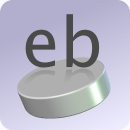Difference between revisions of "Package:Dbus"
m (Added ebuild template and footer) |
|||
| (2 intermediate revisions by the same user not shown) | |||
| Line 1: | Line 1: | ||
{{Ebuild | |||
|Summary=A message bus ystem, a simple way for applications to talk to each other | |||
|CatPkg=sys-apps/dbus | |||
|Maintainer= | |||
|Homepage=http://dbus.freedesktop.org/ | |||
}} | |||
== Introduction == | == Introduction == | ||
==== What is Dbus? ==== | ==== What is Dbus? ==== | ||
| Line 12: | Line 19: | ||
<console> | <console> | ||
###i## rc-update add dbus default | ###i## rc-update add dbus default | ||
* service dbus added to runlevel default | |||
###i## rc | ###i## rc | ||
* Starting dbus ... | |||
</console> | </console> | ||
{{EbuildFooter}} | |||
[[Category:System]] | [[Category:System]] | ||
Latest revision as of 17:24, September 23, 2014

Dbus
We welcome improvements to this page. To edit this page, Create a Funtoo account. Then log in and then click here to edit this page. See our editing guidelines to becoming a wiki-editing pro.
Introduction
What is Dbus?
"D-BUS is an interprocess communication (IPC) system, providing a simple yet powerful mechanism allowing applications to talk to one another, communicate information and request services. D-BUS was designed from scratch to fulfill the needs of a modern Linux system. D-BUS' initial goal is to be a replacement for CORBA and DCOP, the remote object systems used in GNOME and KDE, respectively. Ideally, D-BUS can become a unified and agnostic IPC mechanism used by both desktops, satisfying their needs and ushering in new features." (Article on Dbus)
Installing Dbus
Emerging
To emerge sys-apps/dbus, run the following command:
root # emerge dbus
and to start dbus, use following:
root # rc-update add dbus default * service dbus added to runlevel default root # rc * Starting dbus ...